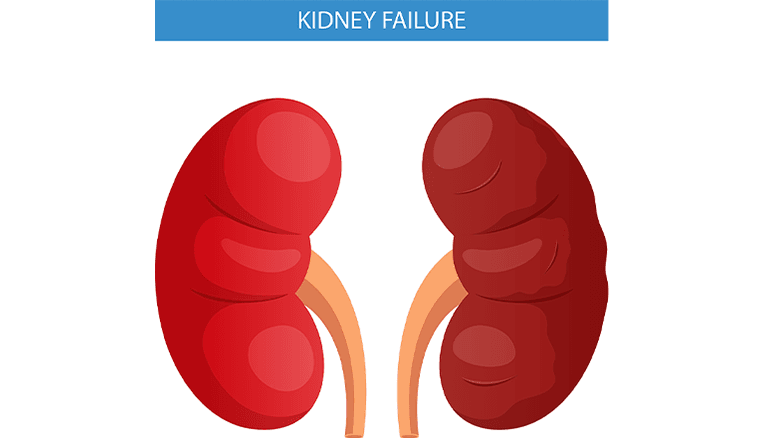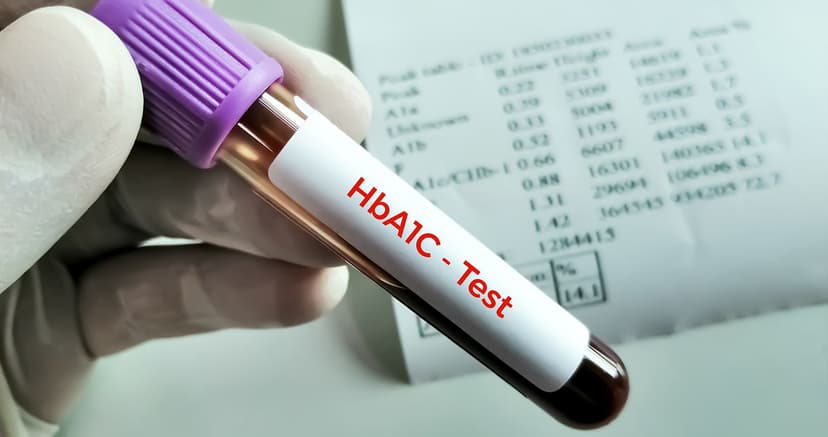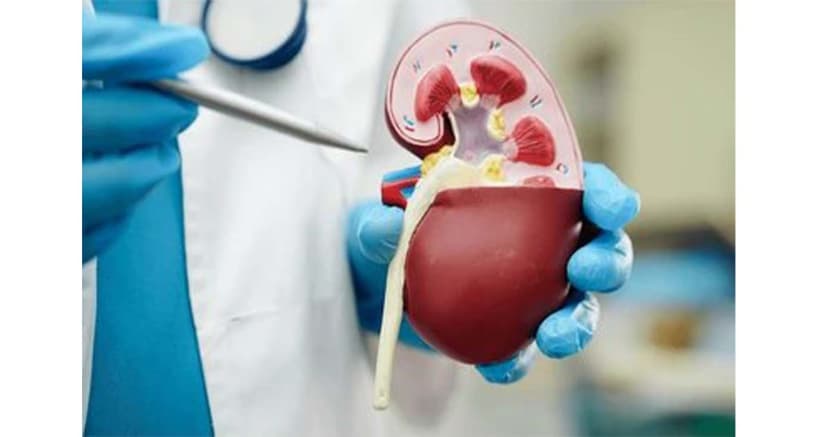Understanding End-Stage Renal Disease: Causes, Symptoms, and Treatment Options
By:

Apex Hospitals
14-07-2023 5 Min Read

End-stage renal disease (ESRD) is the final stage of chronic kidney disease, where the kidneys can no longer function properly. This condition requires immediate medical attention as it can lead to severe complications and even death.
What is end-stage renal disease (ESRD)?
End-stage renal disease (ESRD) is when the kidneys have lost most of their function and can no longer remove waste and excess water from the body. This condition is also known as stage 5 chronic kidney disease (CKD). ESRD is a life-threatening condition that requires immediate medical attention and treatment.
Understanding the kidneys and chronic kidney disease
The kidneys are two bean-shaped organs located in the abdomen. They play a vital role in maintaining the body's balance of fluids and electrolytes. Chronic kidney disease (CKD) is when the kidneys gradually lose function over time. CKD can progress to ESRD if left untreated. End-stage renal disease (ESRD) is another name for end-stage kidney disease. The kidneys of individuals with ESRD function at less than 10 per cent of their average capacity, which may indicate that they function minimally or not at all.
Causes of end-stage kidney disease
There are several end stage renal disease causes, including:
- diabetes
- high blood pressure
- glomerulonephritis
- polycystic kidney disease
- lupus
- Vesicoureteral
Diabetes and high blood pressure are the most common causes of ESRD. These conditions can damage the blood vessels in the kidneys, leading to kidney failure.
Who is at risk of end-stage kidney disease?
People with a family history of kidney disease, diabetes, high blood pressure, or heart disease are at a higher risk of developing ESRD. Other risk factors include being over 60, smoking, and obesity. It is essential to get regular check-ups and screenings if you have any of these risk factors.
Symptoms of end-stage kidney disease
The end stage renal disease symptoms can vary from person to person. Some common symptoms include:
- fatigue
- weakness
- nausea
- vomiting
- dry skin and itching
- muscle cramps
- swelling in the legs and feet
- changes in the colour of the skin
- loss of the appetite
- sudden weight loss
As ESRD progresses, symptoms can become more severe, including difficulty breathing, seizures, and coma.
Diagnosis of end-stage kidney disease
ESRD is diagnosed through:
- Urinalysis: This test allows your physician to examine your urine for protein and blood. These substances indicate that your kidneys are not correctly eliminating waste.
- Serum Creatinine Test: This test allows your doctor to determine if creatinine accumulates in your blood. Creatinine is a waste product that the kidneys should filter out of the body.
- Blood Urea Nitrogen Test: This test allows your physician to determine the amount of nitrogen in your blood.
- Estimated glomerular filtration rate (GFR): This test allows your physician to evaluate how efficiently your kidneys filter waste
These tests can determine the level of kidney function and identify any underlying causes of kidney disease.
Treatment options for end-stage kidney disease
There are two main end stage renal disease treatment options: dialysis and kidney transplant.
- Dialysis is a medical procedure that removes waste and excess water from the blood when the kidneys can no longer do so.
- A kidney transplant is a surgical procedure that replaces a diseased kidney with a healthy one from a donor.
Dialysis: types, how it Works, and What to Expect
There are two types of dialysis: haemodialysis and peritoneal dialysis. Haemodialysis is performed using a machine that filters the blood outside of the body, while peritoneal dialysis uses a catheter inserted into the abdomen. Dialysis can be done at a dialysis centre or home with proper training and equipment.
Kidney transplant: the process and considerations
A kidney transplant is a surgical procedure where a healthy kidney is transplanted into a person with ESRD. The donor kidney can come from a living donor or a deceased donor. The transplant process involves extensive testing, evaluation, and preparation. After the transplant, the recipient will require lifelong medication to prevent the rejection of the new kidney.
Complications of end-stage kidney disease
ESRD can lead to several complications, including:
- anaemia
- bone disease
- high blood pressure
- nerve damage
- heart disease
These complications can significantly impact a person's quality of life and increase the risk of death.
Coping with end-stage kidney disease: lifestyle changes and support
Living with ESRD can be challenging, but several lifestyle changes and support options can help. These include following a kidney-friendly diet, staying active, managing stress, and seeking support from family, friends, and healthcare professionals.
ESRD is a severe and potentially life-threatening condition, but leading a fulfilling and healthy life with proper treatment and management is possible. If you have any symptoms of kidney disease or are at risk of developing ESRD, seeking medical attention and regular check-ups is essential. With the proper care and support, you can manage ESRD and enjoy a better quality of life.
Related Articles
Connect With Us
Health In A Snap, Just One App.
KNOW MORE
























































































































































